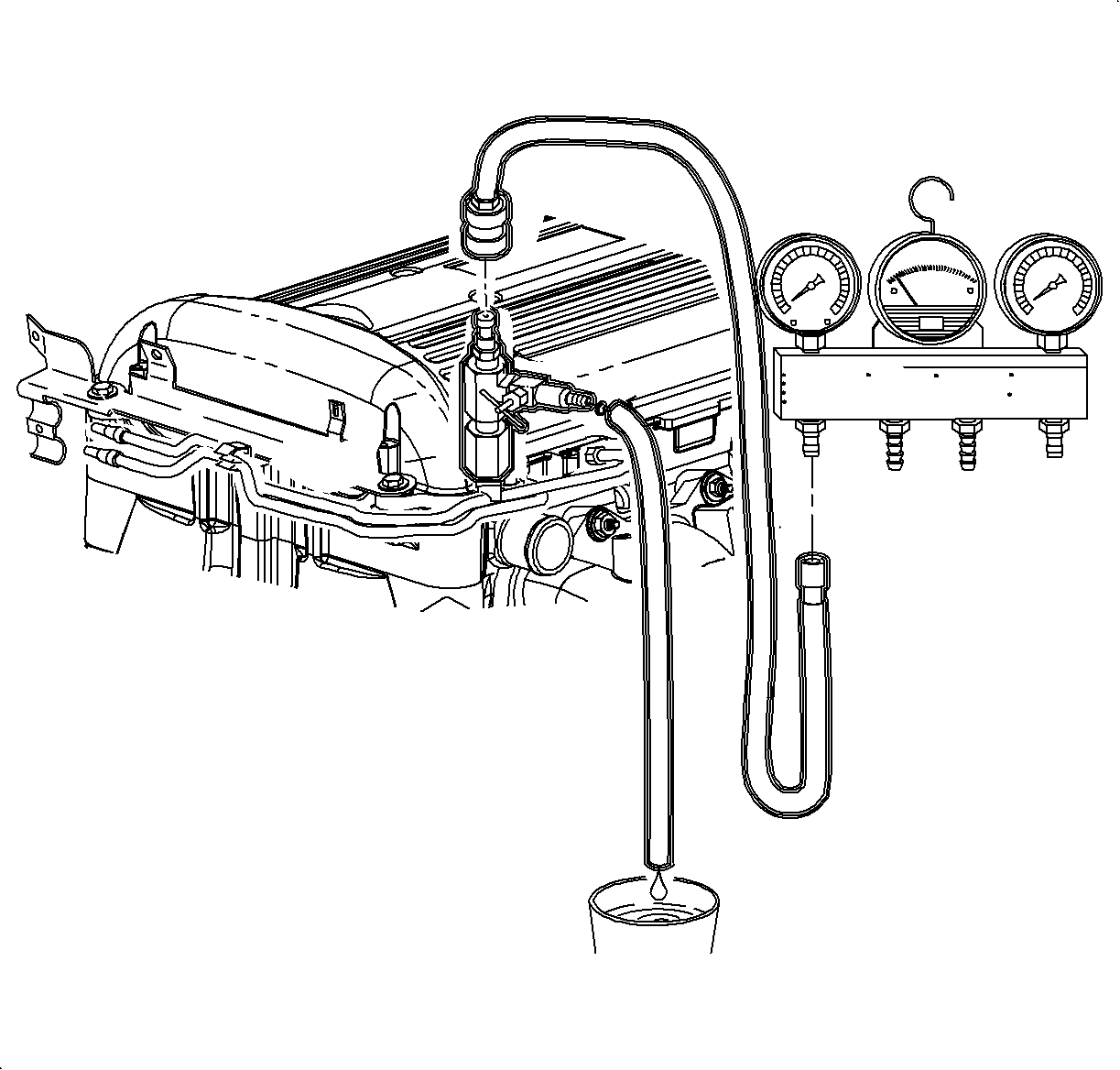Tools Required
SA9127E Gage Bar Set
Caution: Fuel supply lines will remain pressurized for long periods of time after the
engine is shutdown. This pressure must be relieved before servicing the fuel system.
Prior to servicing any fuel system components, such as the fuel rail, injectors,
filter, pressure regulator, fuel tank, fuel pump module, etc., any pressure built
up in the system must be relieved. There are 2 preferred methods:
- Start and run vehicle then disable the fuel pump with the scan tool.
This method is the cleanest since no fuel, under pressure, will be present at
any fitting or connection that needs to be serviced.
This method is preferred when removing any components of the fuel system that
require disconnecting fuel lines. If performance tests are to be run on the system
underhood, procedure 2 will be preferable since the SA9127E
will also be required for the testing.
This method is also preferable to disconnecting the fuel pump relay since no
DTCs will be set and there is no concern about voltage spikes to the engine control
module (ECM) if the relay should be installed with the key ON.
| 1.1. | Connect the scan tool and start the vehicle. |
| 1.2. | Turn the scan tool ON and locate Special Functions. |
| 1.6. | Command the fuel pump OFF. |
| 1.7. | The engine will die in 3-5 seconds. Turn the key OFF, and proceed
with component removal/installation. |

- Bleed the pressure at the service test port.
This method will require
collection of fuel as pressure is relieved. Use of a suitable container is required.
| 2.1. | Locate the service test port on the fuel rail and remove the protective
cap. |
| | Caution: Do not allow smoking or the use of open flames in the area where work on the
fuel or EVAP system is taking place. Anytime work is being done on the
fuel system, disconnect the negative battery cable, except for those tests where battery
voltage is required.
|
| 2.2. | Connect the gage bar to the fuel gage pressure adapter using a flexible
hose from the SA9127E
. |
| 2.3. | Make sure the needle valve on the pressure adapter is closed (OFF). |
| | Notice: Do not use any tools to tighten the adapter to the fuel line pressure port.
If the adapter will not seal with finger tightening, then the seal is defective or
damaged and needs to be replaced. Excessive torque on the adapter will damage the
fuel line test port.
|
| 2.4. | Connect the pressure adapter to fuel line test port. |
| 2.5. | Route the drain hose from the pressure adapter into a suitable container
or route the fuel back to the fuel tank. |
| 2.6. | Open the valve on the pressure adapter and bleed off the pressure and
fuel. |

